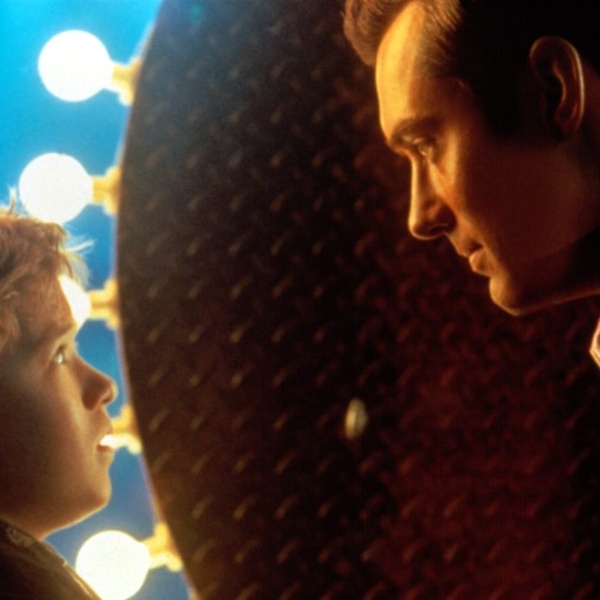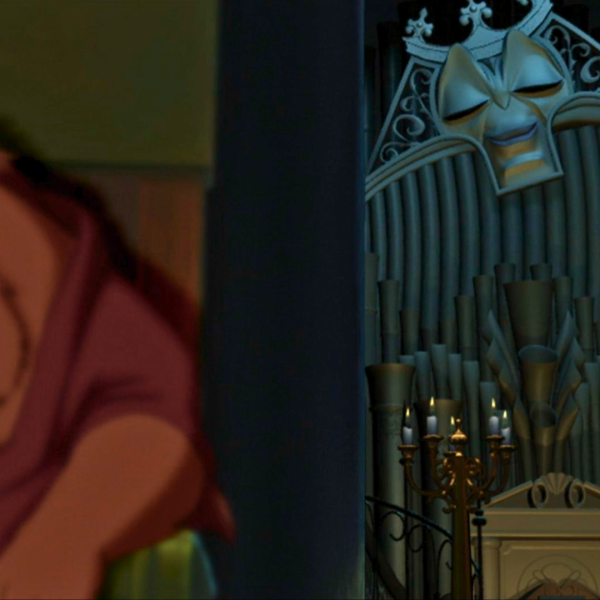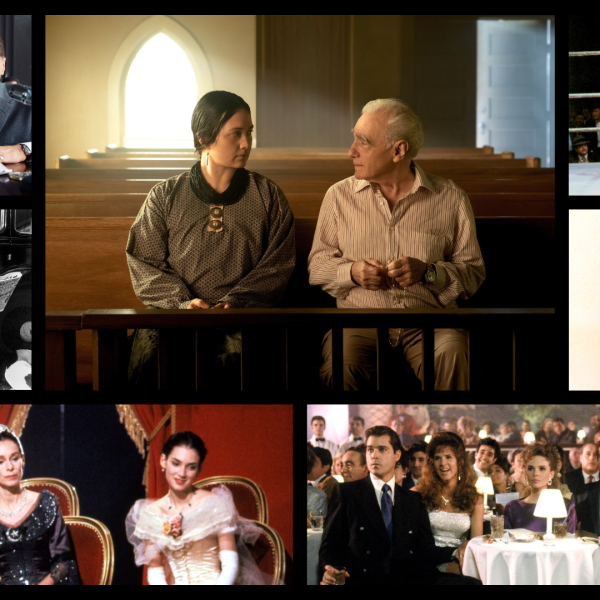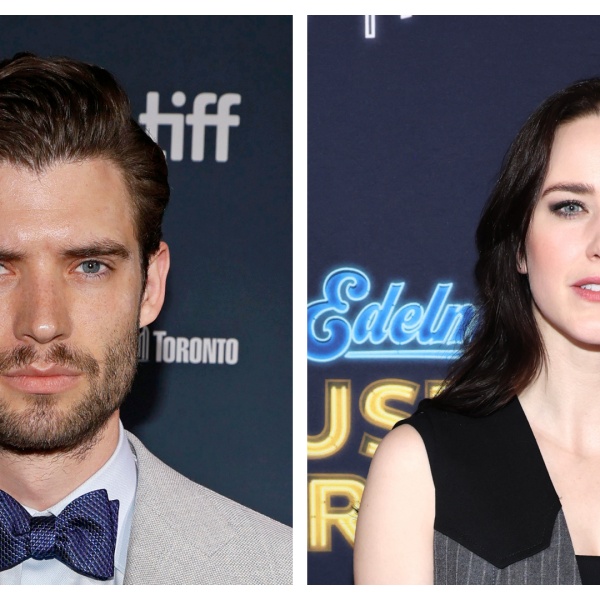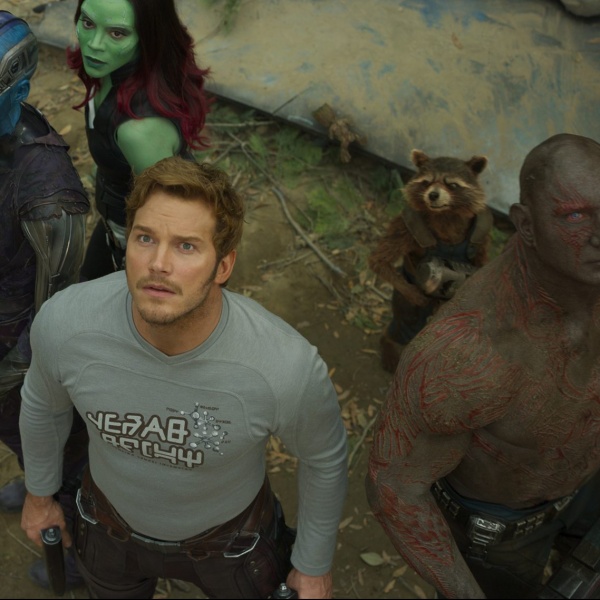Says He Loved Alexandre Desplat’s ‘The King’s Speech’ Score & Was Hoping It Would Take The Oscar

For years Cliff Martinez has been producing brilliant, but often times below-the-radar, scores, doing a lot of work for Steven Soderbergh. His first score was Soderbergh’s first film — “sex, lies, and videotape” — and from there the two have collaborated on a number of projects, including “Solaris,” “Kafka,” “The Limey” and “Traffic.” That relationship is still going strong as they will be reteaming once again, on this fall’s virus thriller “Contagion.” On the occasion that Martinez does work for another filmmaker, the results are usually just as compelling (particularly his score for Joe Carnahan’s “Narc”). We recently spoke to Martinez about his work on the legal drama and sleeper box office hit “The Lincoln Lawyer,” his process, and about what he has in store for us with his work on Nicolas Winding Refn’s Cannes-bound “Drive.”
What drew you to “The Lincoln Lawyer” and what was your approach to the score?
I guess I was drawn to the job because it was a good film. I went to a preview screening and it was just a terrific movie. I know they were desperately afraid of it sounding like a television courtroom drama, so I was trying to avoid it sounding like anything typical. Although I don’t watch much television anyhow, so I don’t know what I was trying to avoid. I think I was hired because of the ambient style I’m known for. I think that’s what the people that hired me were after. So that was the main inspiration to do something kind of stark.
The score has a very striking mixture of electronics and orchestral stuff. Was there ever any hesitation on the filmmakers to go down that road? Where did those sounds come from?
Well, it’s funny, a lot of the people I do these scores for have a real strong aversion to synthesizers, because they sound buzzy and overtly synthetic and electronic. And that was the case here. That’s the one thing ambient scores are known for – using a lot of electronics and synthesizers. So it was more of an addition of textures to organic source materials. In a way I was asked to do something that sounds electronic but not synthesizer electronic. Most of the things are stretched out organic sounds, rather than using something that sounds overtly plastic or synthetic. A lot of them are recordings of orchestral sounds that have been stretched out. They’ve been pitched and stretched beyond recognition, but they do come from something organic originally. A lot of the sounds on “Lincoln Lawyer” are orchestral recordings are re-pitched and no longer recognizable, rather than creating them completely from scratch from the synthesizer.
And was this the approach to your “Solaris” score?
“Solaris” had some of that too, yeah. A lot of the stretched out textures in that were metallophones [percussion instruments that strike metal tubes] and stretched out they become percussive sounds and long, sustaining textural sounds. A lot of people thought “Solaris” was a synthetic score but 80% of “Solaris” was the sound of an orchestra. Most people don’t think or recognize that. One of the great quotes I got was “a terrific ambient synthesizer score.” But it was in fact a 90-piece orchestra! Just the way it was orchestrated – I used string harmonics a lot, which kind of makes the orchestra sound a little bit artificial, and the way I used it in an ambient style, and because I’m known for more electronic scoring than orchestral scoring, many people assumed that it was electronic. But that was my first giant orchestral recording – it was a 90-piece orchestra that did most of what you hear.
Can you take us through the process? Because you don’t have a lot of big, Danny Elfman-ish themes but there are certain motifs you weave through the work.
It seems like everybody I know has a strong aversion to themes in the sense of strong, melodic hooks that you associate with a situation or a character. The thinking of a lot of filmmakers is that melodies and themes take a lot of your attention, perhaps away from the screen. I like using melodies. I do it whenever I can. But often I’ll settle for a motif based on a certain sound or something a lot simpler than a listenable, hummable melody. Like “The Limey” just had this ending piano note, that I wouldn’t go so far as to call it a theme, but it’s something that you recognize and sounds familiar. So I try to do something that’s a recognizable motif that’s heard and evolves throughout the movie but isn’t exactly melodies or traditional film themes.
How does your work in the rock’n’roll arena inform your compositions? [Martinez was a drummer who played with Captain Beefheart, The Dickies and most notably, The Red Hot Chili Peppers]
I’ve often thought that my background in rock’n’roll has gone to waste in film work. My background was that I was a rock’n’roll drummer and I don’t think I used drums in my first ten years of film scoring. So, in a general sense, being a rock’n’roll drummer taught me to be an accompanist, which is kind of the mindset that you have to be in when scoring films. You’re basically there in a support role and you’re there to make everybody else look good. But for the most part, no, those skills haven’t done me much good at all. Occasionally I’ll score something using a percussion controller, like “Kafka,” which was done with a MIDI drum controller, so occasionally I’ll get to use my drum skills on a film that’s rhythmic. But no. The whole sensibility is different. Writing songs and playing drums haven’t gotten me much mileage in the film world.
But your scores tend to be rhythmic and propulsive. There isn’t anything that’s informed your film work?
Well, the one thing I do well is work with rhythm, so if I get to use it, being a drummer/percussionist does help. But, I’m thinking of my first few films – “sex, lies, and videotape,” complete absence of anything rhythmic… I guess there’s a little bit of rhythm in certain things. But the ambient thing deliberately avoids doing anything rhythmic. When I get to do it in something like “Lincoln Lawyer,” though, it does help. Although I’m terrified when I sit down to play the drums now. It’s a physical chap that you lose pretty quickly if you don’t keep up with it. I’m horrified at how poorly I play now.
Have there been any recent scores that you’ve really loved?
Well, some big ones – I was really pulling for “The King’s Speech.” I think everybody kind of thinks a score is great if the film is great and if the film isn’t great the music isn’t so great either. But that score really got my attention. That guy [Alexandre Desplat] really knows what he’s doing. And I thought it was a stupendous film and you kind of go along for the ride because the film is so great. But that was a recent one that caught my attention. I thought “Social Network” was innovative and distinctive as well.
It seems to be an interesting time with people moving from the electronic music realm over to film scoring, like Trent Reznor and more recently Daft Punk and Chemical Brothers.
Well, I think people can’t make money selling records anymore. I think a lot of these people who were in bands, making records, it’s just hard to make a living at it. You make money in live performances but it’s very difficult making money selling records. One of the things that are left are videogames and film and television, where you’re paid an upfront fee. I think the nature of being a professional musician has altered quite a bit. I was talking to Flea — I used to work as part of the Red Hot Chili Peppers. And he said, “You know, we don’t make any money selling records anymore. That era is a bygone era. We only make any money from our live shows.” Now, I don’t know what he means by “we don’t make any money,” when you get to that altitude, you don’t make millions selling records? But I thought that was a very discouraging thought – that one of the biggest bands in the world is having all of their music pirated and not making any money on their record sales. So I think that’s why everybody wants to get into licensing materials, film composing, television composing – because the pop music thing was always a reckless career choice but is now even more so.
What’s interesting too is that they’re not really pressing film scores anymore, most things are going directly to iTunes.
I’m not sure why anybody makes a physical CD anymore when the costs are so much lower to just throw it up on iTunes. And it doesn’t seem that making a hard copy of something prevents pirating any less. I mean I’m amazed that they still do that. They pressed “Lincoln Lawyer.” They put that out there. And I kept thinking “Why are they doing that? Why incur the costs? Do they sell more initially?” I’m not sure what the economics of it is, if it’s a quaint relic of a bygone era or do they sell more of them initially because people want the artwork and the linear notes and the whole package. Or does anybody hear the difference between compressed files and CD? I don’t know the economics of why CDs get pressed at all, quite frankly.
What about Nicolas Winding Refn’s “Drive?” Are you finished and done with that?
I’m finishing it as we speak. I’ll be finished next Monday and it looks like it will be in the Cannes Film Festival.
When we interviewed Ryan Gosling last year for “Blue Valentine” he told us it was a combination of “Blue Velvet” and “Purple Rain.” Is the movie as crazy as the movie makes it out to be?
Yeah, I wouldn’t mess in that description at all, it just sounds so juicy and appealing! I guess it’s pretty far out. I’m so deep into it that it doesn’t seem so David Lynchian to me. I remember when I first saw it I thought it was pretty out there and pretty weird. And I guess what happened was that it was going to be a $60 million Universal picture with Hugh Jackman. So that’s where it came from. And Nicolas kind of turned it into a part of his personal style. But it is really good, a really, really exciting film. I would say it’s unique more than weird. My roommate keeps telling me, “This guy you’re working for – he must be insane!” I know on first viewing it strikes people as really weird but I could see it being a really commercial film.
It must give you a lot of freedom to do some percussive stuff because it seems so action-packed.
Some of that, yeah. It’s not quite as rhythmic as “Lincoln Lawyer.” Initially, Nicolas had the preference initially, the temp be all drones – all textures and atmospheres. And then he came to me, “I’m a little worried – when you go with this ambient style, the danger is that it will take energy away from the film.” So a lot of the stuff has rhythm in it. But it started off as a purely ambient score. It’s evolved into something more rhythmic, it’s an electronic ambient score with a fair amount of rhythm in it. But like a lot of guys, he doesn’t score the action stuff that much. When the action starts, it’s when the music disappears. It’s often the psychological moments that lead up to it or after the action moments, that are the important, key music moments. But it’s got a fair amount of the basic food groups of romance and violence and action sequences. And with Nicolas’ unique style, who was a director I was not familiar with. But then I saw “Bronson” and “Valhalla Rising” and realized that he’s got a unique voice in film.
How has your relationship been? It seems like he’s going to jump into “Logan’s Run” with Ryan – has he talked to you at all about doing that?
He’s mentioned it to me. Before I leave this project I’m going to have to strong-arm him a bit and tell him my feelings will be hurt if he doesn’t bring me along. But he told me he’s going to do another Danish film in between. So I think he’s got something in between “Drive” and “Logan’s Run.” But he’s brought it up and mentioned he’s going to do it so of course I’m thinking about it. But I haven’t popped the question yet. We had a great relationship. He’s been terrific. He’s another guy who has a big imagination and has an interesting take on some fairly standard issue stuff. The romance in the film, for instance, the romantic scene, he wanted to give it a religious quality, give it a hymnal feel. And I thought, “What a great take on a love scene, to give it this hymnal quality.” Another thing that’s in “Bronson” and in this, and this is where the “Purple Rain” thing comes from, is that he seems to have a real love of ’80s synth pop music. So at last I’ve run into a director that has embraced the sound of analogue synthesizers! Everybody I work with hates that sound. And Nicolas is really into it. So he’s got a couple of things, certain 80s synth pop things have really influenced the score. That’s a new wrinkle that I haven’t had to play with.
Yeah, he told us that he originally wanted the entire soundtrack to “Bronson” to be Pet Shop Boys songs.
I didn’t know that! That’s awesome. Well there are a bunch of songs in the film and I usually bend over backwards to try and bridge the stylistic gap. I mean, I couldn’t sound like Kanye West if somebody put a gun to my head. For instance, “Lincoln Lawyer” had a lot of rap songs and I just don’t try to bother sounding like that, because I can’t do it and I don’t think it’s necessary most of the time. But with this, I felt compelled to be influenced by the sounds of the 80s because it had a bunch of songs by contemporary artists who are doing songs that are homages to the 80s. And I thought “That’s interesting, I might try to weave that into the score.” So it’ll have a very distinctive religious 80s synth pop feeling to the score.
So who did he use that you tried to bridge?
I wish I could tell you. There’s a song called “Real Human,” I don’t know the name of the artist. But that’s a song that appears twice. There’s an artist named Johnny Jewel. And there’s something else… There’s a song that was on the “Lincoln Lawyer” soundtrack, in the first nightclub scene, when they’re talking about the girl picking up Ryan Phillippe, and that’s the opening piece in “Drive.” So there’s nothing from the ’80s. They’re all contemporary artists doing the ’80s.
It sounds like it would be a lot of fun to listen to your stuff with the songs. Do you prefer a stand-alone score album or would you be cool with something that mixes song and score?
I think it depends. I thought, for “Solaris,” for example, there’s one song that’s an Insane Clown Posse song that one of the shipmates was listening to on his headphones. And I was dreading the thought of 45 minutes of “Solaris” orchestral score and then an Insane Clown Posse song. So for certain things I don’t think it’s a good idea. But other times I like to hear them together. For “The Lincoln Lawyer” I kind of liked it, because they had 25 minutes of songs, and 50 minutes of score. So I like that they did that separately. And when you put them side-by-side, it seems like two separate CDs. But for something like “Drive” I think it’d be best to hear it together. But it depends on how much material it is because “Drive” has 25 minutes of songs and 50 minutes of under-score. So it could be a stand-alone CD. A lot of soundtracks I don’t think deserve to come out on CD because the music is designed to accompany something. And you take that music away from the thing it’s accompanying and it sounds naked and uninteresting. And we get the blame for it. There are some reviews for “Lincoln Lawyer” that say, “this stuff is boring, it doesn’t develop, there are no themes” and it’s like “Well, that’s what happens.” You take this stuff away from its original context and sometimes it’s a little too simplistic as a stand-alone listening experience.
The “Lincoln Lawyer” is in theaters now. The soundtrack is available via Lakeshore Records.
